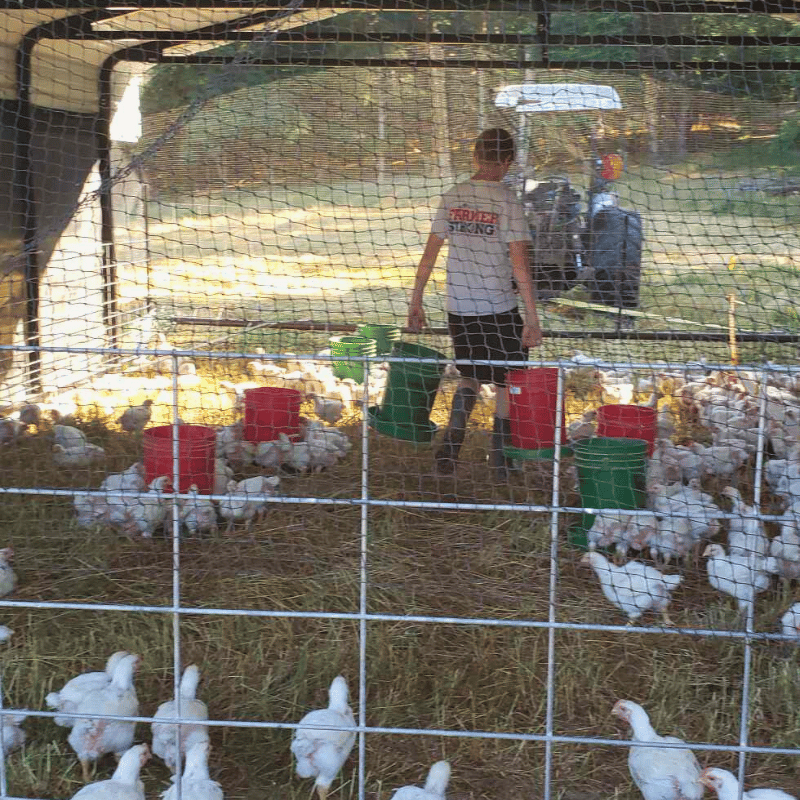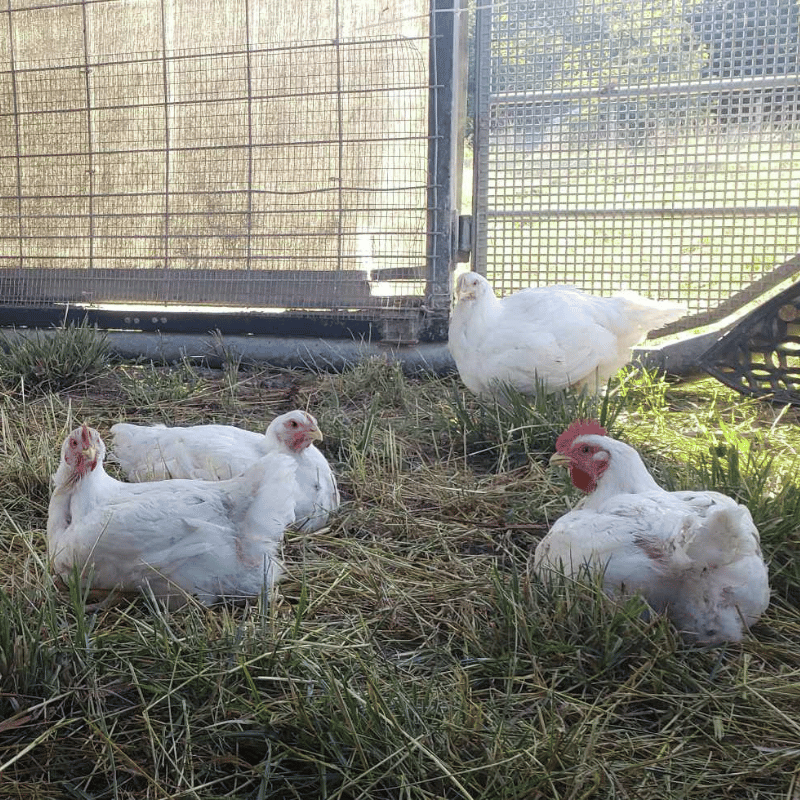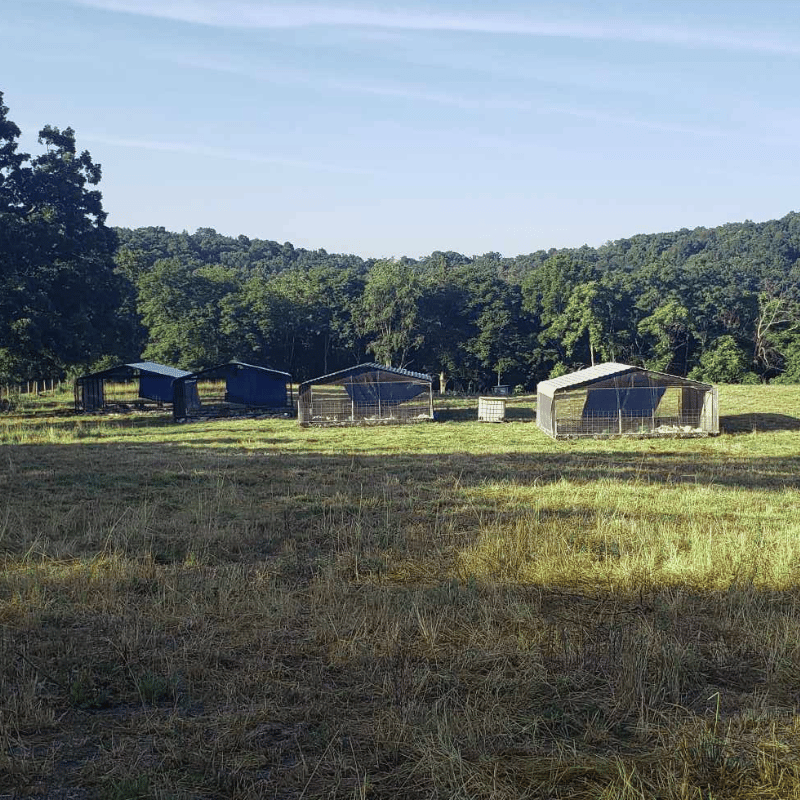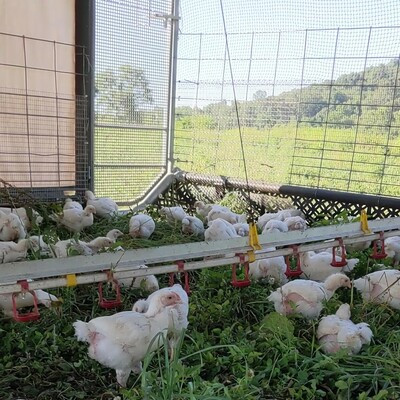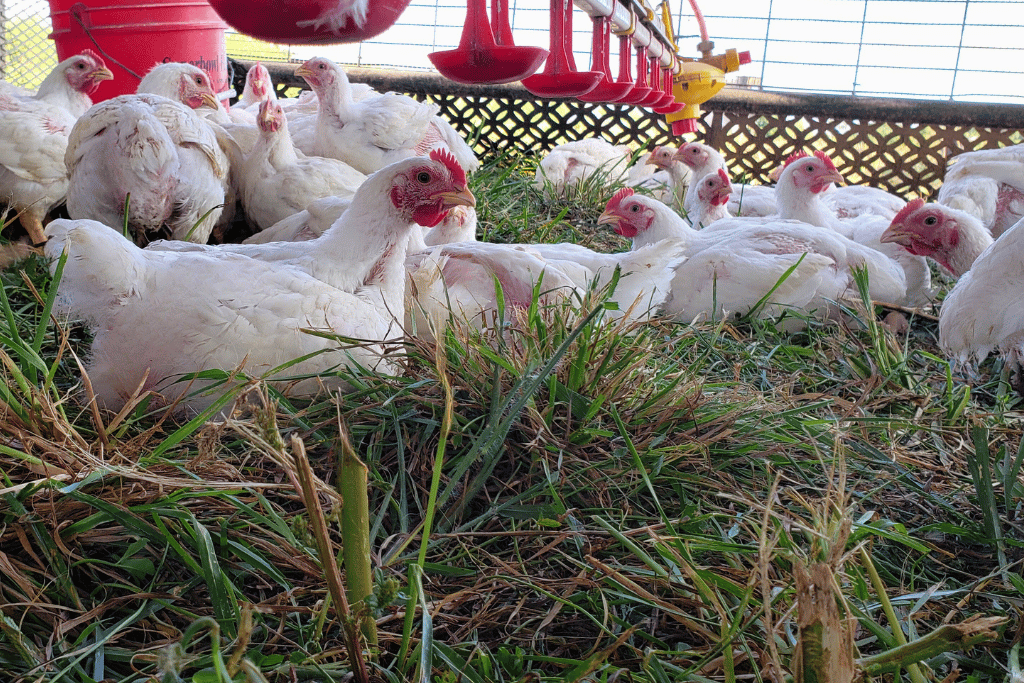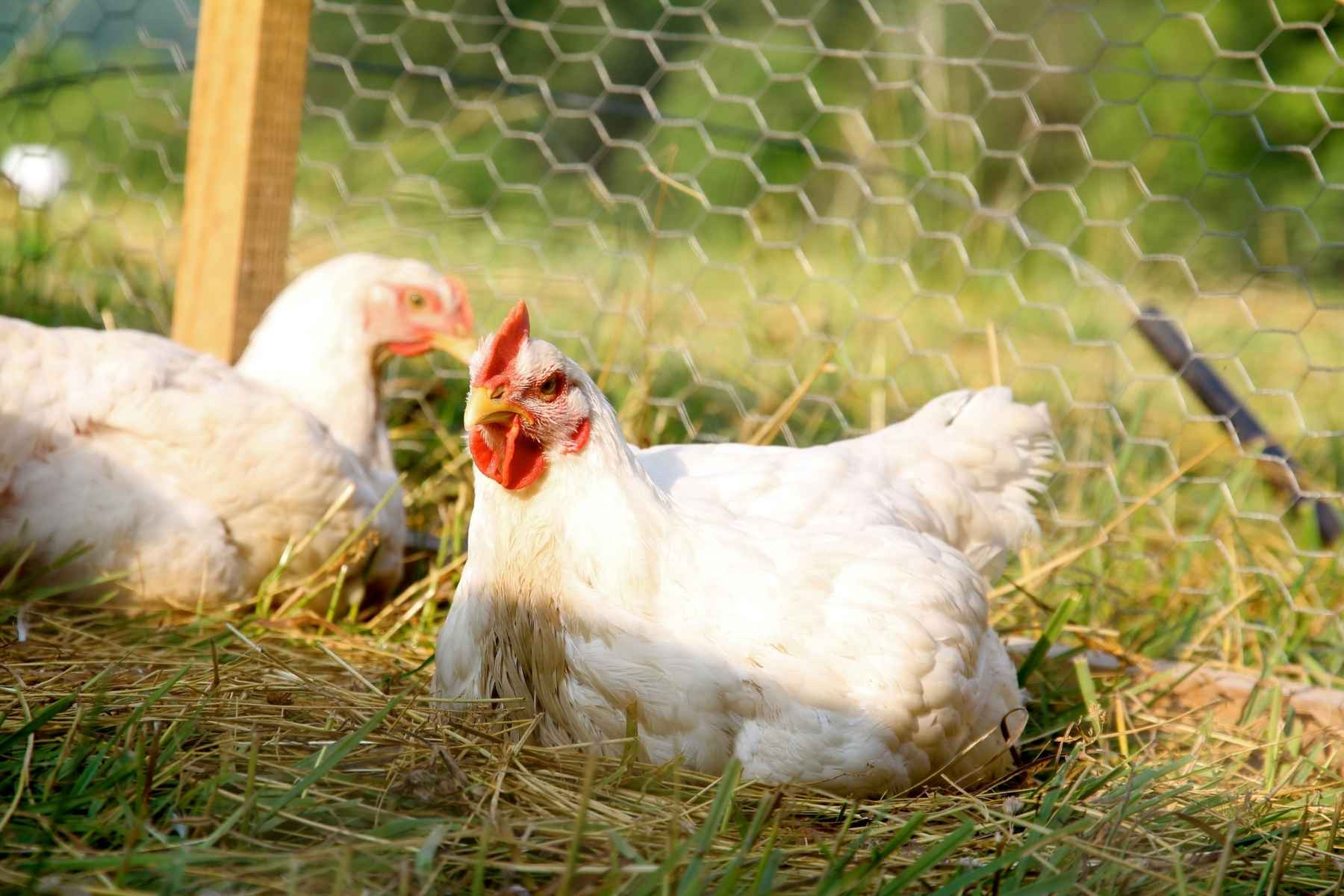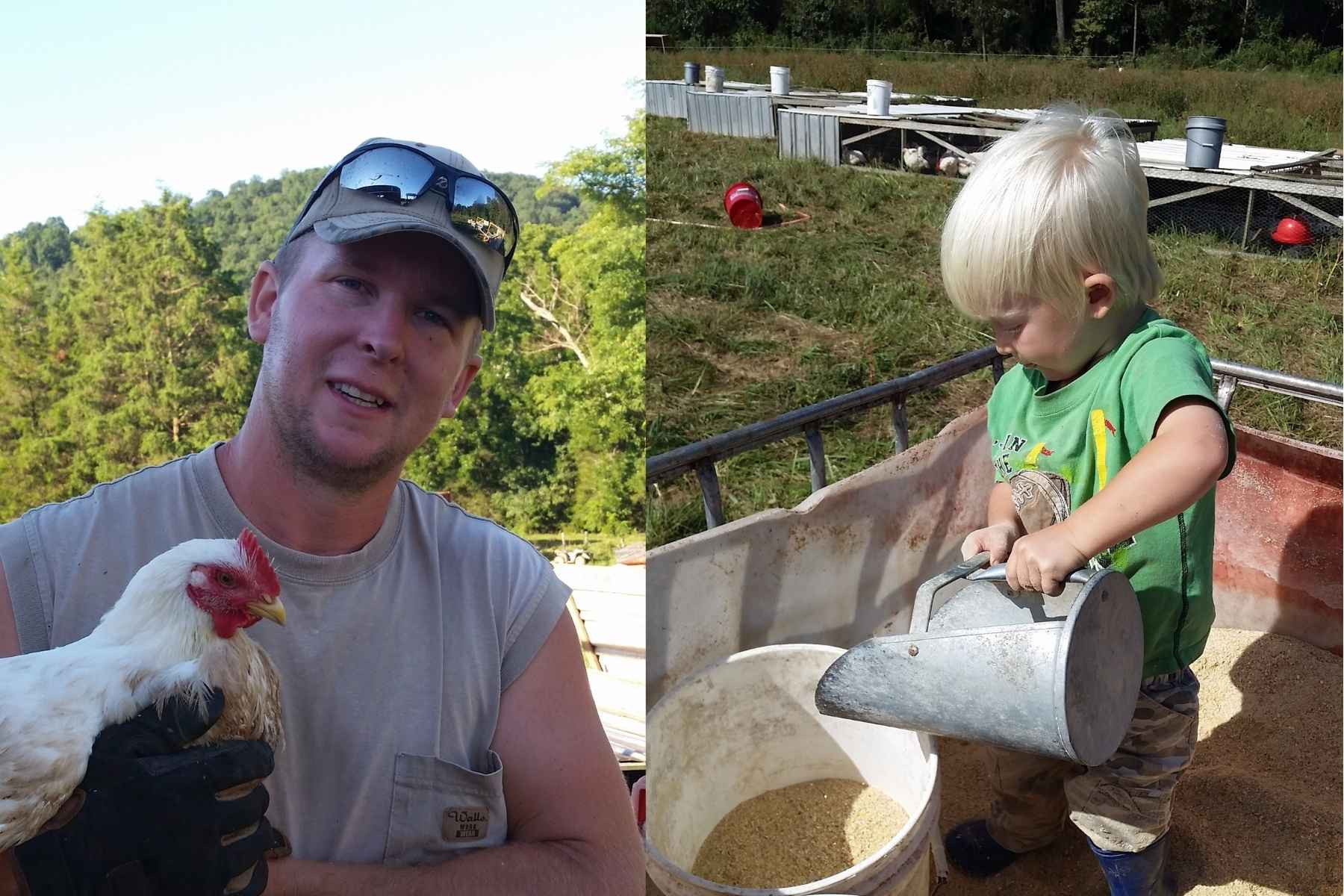Pasture Raised Chicken Principles:
By moving chickens daily to fresh green grass we produce healthy meat and healthy land!
What Makes Our Chickens Special
Pastured chickens are not just “given outdoor access”; they are constantly outdoors after they reach three weeks of age. From March-November in Virginia, we take great care in raising and producing healthy, humanely-raised chickens on our farm. As you can see from the pictures, the chickens are directly on grass, pecking on the lush greenery and eating worms and bugs. They are enclosed in a large “pasture shelter” which keeps predators like foxes, weasels and raccoons from coming in and attacking the chickens. Fresh water is always available for them to drink, and they are supplemented with non-GMO (not genetically modified) grain and fishmeal. Every day, we move the chickens to fresh pasture. This rotational grazing enables the chickens to fertilize the soil with their manure and to eat the grass, forage and bugs before moving on to fresh pasture. Since our farm is small, we are able to slaughter the chickens right on the farm, which ensures they are not exposed to any chemicals before they’re frozen.
What to expect from our chickens:
No antibiotics ever, or any growth promotants, DRUG-FREE
Raised in our sheltered, airy farm brooder to 3 weeks of age
From 3 weeks on, they live in mobile shelters on untreated pasture
Moved daily to new areas of fresh grass
All-natural diet high in grass and bugs
Supported by GMO-free feed from local producers/mill
Harvested humanely, by hand, on our farm under VA exemption

Moved Daily to Fresh Pasture
The shelters that house the chickens are moved every day to fresh grass. If you watch closely, you can see the birds run into the new spot and start plucking the grass and eating it. We harvest the birds at around 8 weeks of age depending on what kind of chicken we want (7 weeks for a nice 3-4 pound roaster or up to 8.5 weeks for larger cuts such as breast & tenders, leg & thigh, etc). We humanely process the birds on our farm, by hand.
Broiler chickens are a seasonal production for us. It is way too cold for the birds in the winter and the pastures are dormant. All the manure put down by the chickens wouldn’t be metabolized by the soil (because it’s frozen) and we enjoy having some time off, too! We stock up the freezers from the bounty of the summer so we have chicken available year-round.

Handled with Care
When the birds are close to three weeks old, we take the chicks out to pasture. We use DPRC's (Dual Purpose Range Coops) designed by Jordan that hold up to 400 broiler chickens at a time. The shelters measure 20 ft. x 28 ft. and are 560 sq.ft. They are spacious and airy, provide sun and shade options for the birds as well as protecting them from rain, and keep the predators out and the chickens in! They are "dual purpose" because they are built to accommodate pigs during the winter when we don't have birds on pasture and we need roof space for the pigs.
Isn’t Organic Cage-free Chicken Just the Same as Pastured?
Unfortunately, there are a lot of shortcuts being made in the poultry industry, so even chickens marked “certified organic” and “cage-free” are actually not given any access to pasture whatsoever. They eat no bugs (which is part of their natural diet), and instead are only given grain as their main nutrition. According to an in-depth article on chicken on World’s Healthiest Foods, “With respect to organic standards, no minimal amount of days spent outdoors or time per day spent outdoors is required for production of organic chicken. Nor must any minimal amount of chicken feed be obtained from a pasture setting.” As opposed to their conventional counterparts, the organic ones are not stuffed in cages; however, they are still stuffed in large poultry houses, with not much room to move and no access to fresh pasture. You’ve likely seen the proud claim on the grocery store package of organic chicken which says “fed an all-vegetarian diet”. That’s when you know that they were given no access to the outdoors and haven’t eaten a bug in their lives!
Conventional chicken, on the other hand, are often given rather nasty stuff to eat, including rendered animal byproducts (not to mention the antibiotics, growth-promoting additives, and highly processed GMO grain as the mainstay of their diets). So, of course the all-vegetarian claim of organic is way better than that, but it still pales in comparison to the way nature intended chickens be raised: out in nature feeding on bugs and naturally fertilizing the land, as we strive to do. It has been noted before that the omega-3 to omega-6 fatty acid ratio is much better in pasture-raised chicken as compared to its store-bought organic and conventional counterpart, and this balance is one important factor to get right for good health. Similarly, vitamins A, D3, and E in pastured chicken were also found to be significantly higher than in store-bought organic or conventional chicken (American Pastured Poultry Producers Association).
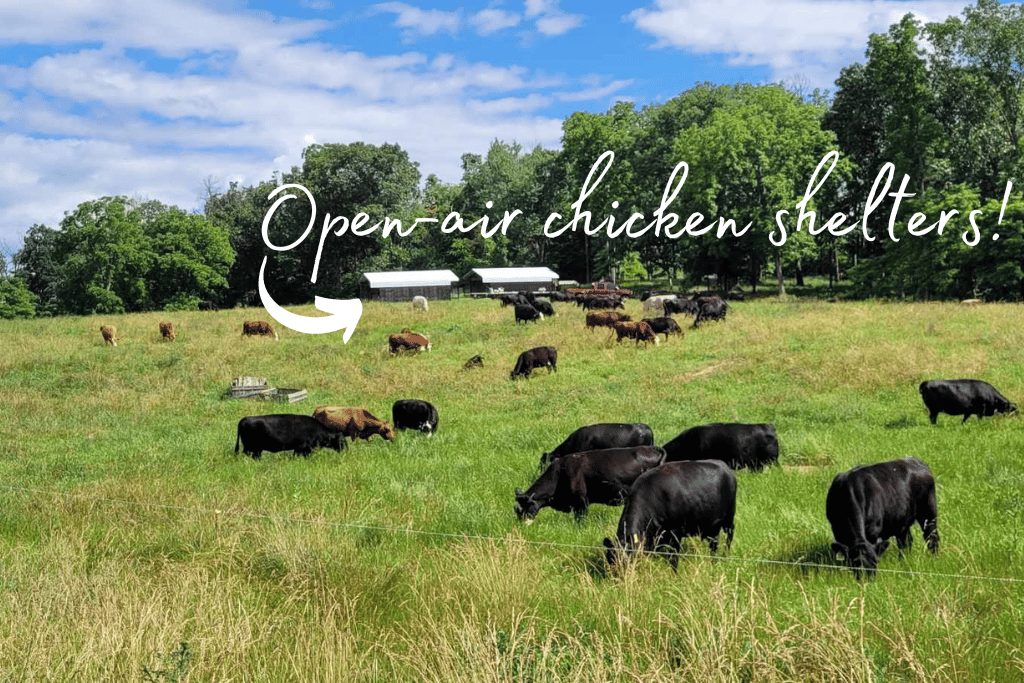
Some Delicious Chicken Recipes to Try
Easy Baked Maple-Mustard Chicken Thighs
Yogurt-Marinated Chicken Masala Skewers
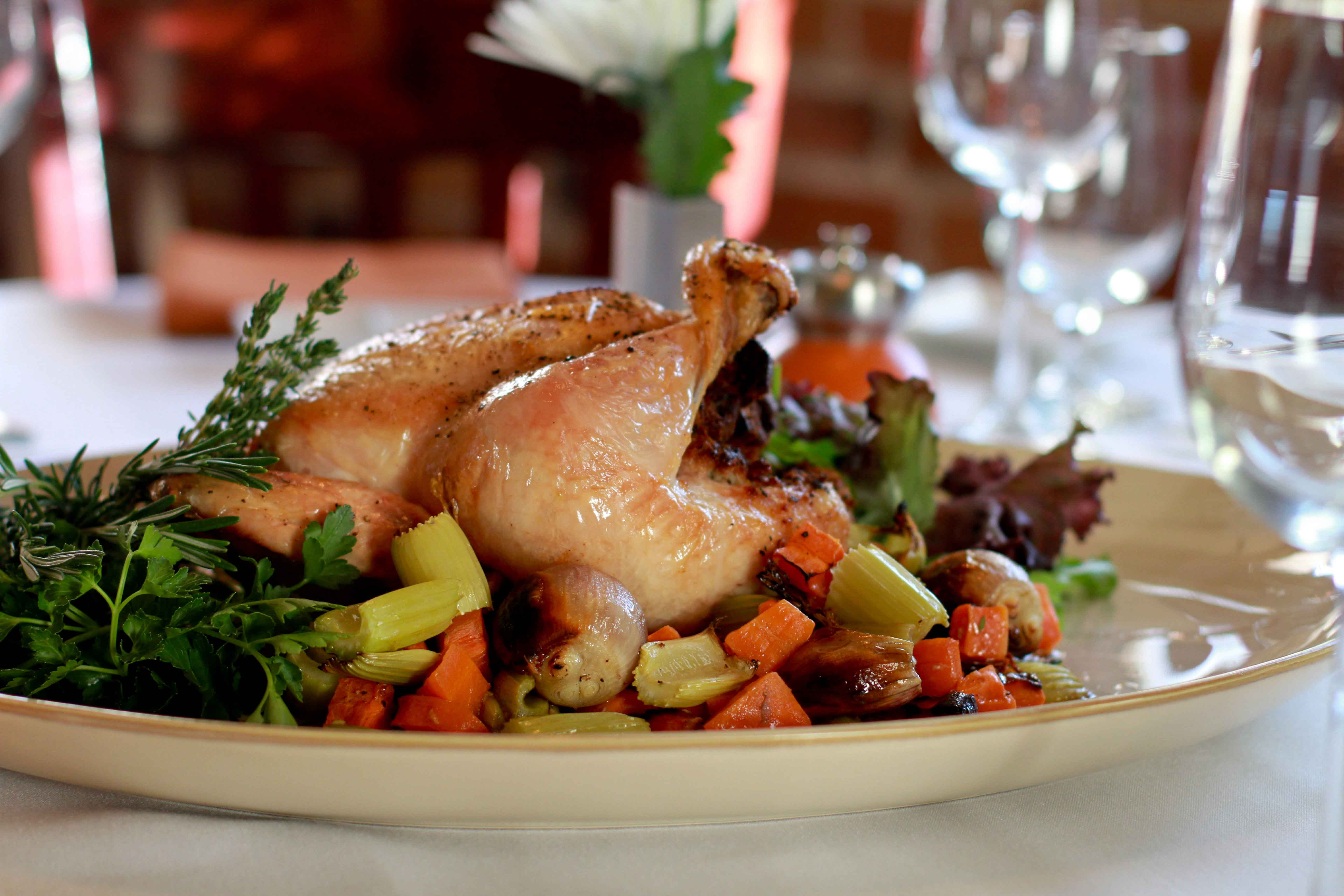
J&L Green Farm © 2024. All rights reserved.

